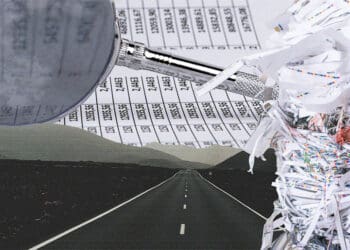The compliance profession offers ample learning opportunities for practitioners at every career stage – from newbies to veterans. Mary Shirley offers insight into the lessons she’s learned from 10 years on the road.
In 2010, I packed one suitcase to embark on a rather impromptu decision to move to Singapore. It was to be a two-year expat journey that triggered a travel bug and curiosity of other cultures and ways of living. Though I had a background in investigations, antitrust and data privacy behind me, it would be my first foray into the anti-corruption compliance world, and from there, I continue to this day on what has become a 10-year-and-counting, five-country-and-counting, round-the-world work and life extravaganza.
These 10 years abroad have been humbling and full of eye-opening opportunities for learning. Here are the top 10 things I have learned about compliance in that time:
1. Compliance is a customer-centric role.
Not quite in the same way as your days behind the counter working in fast food or on the floor in retail, but basically the same principles apply. Our job is to listen to what the customer is saying – and especially what they’re not saying – to figure out how you can best help them achieve what they need. You also need to be willing to hand-hold. Yes, page four of the policy might have all of the information they need, but sending your valued customer off without guidance is not the best customer service you could be giving. So, pick up the phone and walk through page four with them – in layperson’s terms if you’re stuck with policies that have been written by lawyers for lawyers.
2. There is no such thing as the lowest common denominator.
The most basic compliance program information that you expect everyone to know has probably not been retained by everyone. Test for it with culture of integrity surveys and other ways to gauge absorption and keep repeating your messages, changing up the way you say it to appeal to different personalities.
3. If a message isn’t sticking, it’s due to my communication.
If I’ve had to educate on a certain point over and over, that’s not my valued customer’s fault; it’s my communication that’s the problem. Keep looking for ways to make a concept relatable and understandable until you’ve found a way to make it hit home. Not sure if it has? Just ask.
4. At the core, people tend to be aiming for the same thing.
There are certainly key cultural nuances to be aware of when practicing compliance internationally. Everyone wants to be in a position to take care of their responsibilities at home and passions in life. We all come from different backgrounds, but our intrinsic motivations tend not to vary too much.
5. No one ever really thinks they’re the bad guy.
In investigations, it can be pretty easy to identify the wrongdoer from the perspective of a compliance officer investigating a case. What we know as the rationalization aspect of the fraud triangle plays a pivotal role in terms of how people view themselves when getting caught up in or instigating naughty behavior. Understanding this can help your line of questioning and treatment of colleagues in an interview. On this point, misconduct is absolutely, literally everywhere. There’s no such thing as a clean country where people don’t try to take advantage of control gaps.
6. My job is compliance. My valued customer’s job is something completely different.
The expectation of everyone is to live within the boundaries of doing the right thing. But it is unreasonable to expect my customer to know and be able to speak about compliance in the same way a compliance expert can. Have patience and empathy.
7. Compliance can be sexy.
Compliance sometimes gets a bad rap, but there are plenty of interesting angles that appeal to the non-compliance professional. I have heard it said that compliance will never be sexy. I beg to differ. There are so many interesting cases that fall into the mainstream news and affect all of us as consumers that we can use to bring compliance to life and make it relatable and interesting for our valued customers. In my opinion, there is a certain schadenfreude-like voyeurism to watching a reputable success story take a reputation hit. These instances are the start of making compliance sexy.
8. I’m never exactly in the shoes of my valued customer.
Not even living in the same country and experiencing their culture. I will likely never know what it’s like to live off a heavily commission-based salary or truly feel significance in my heart in the same way my local colleagues do about important cultural practices for a group of which I am not a part. But it’s better than not trying, and you can still learn a heck of a lot and have a blast anyway.
9. The revenue protection/preservation department is critical.
Sometimes it has to be enough to know this yourself, even if it doesn’t get the same accolades and attention as revenue-earning areas of the business.
10. Compliance is a dream job.
So many different skill sets are triggered: policy drafting, investigations, analysis of facts against a legal framework, advisory, negotiation, audit, fixing (OK, technically we call that remediation, but I feel like “fixing” is an appropriate term), risk assessment, training, communications and marketing… the list is endless. What else? Travel opportunities, a seat at the table, protecting reputation and revenue, protecting colleagues, living the values of ethics and integrity just for doing your job.
Oh yes, how very lucky we are indeed.















